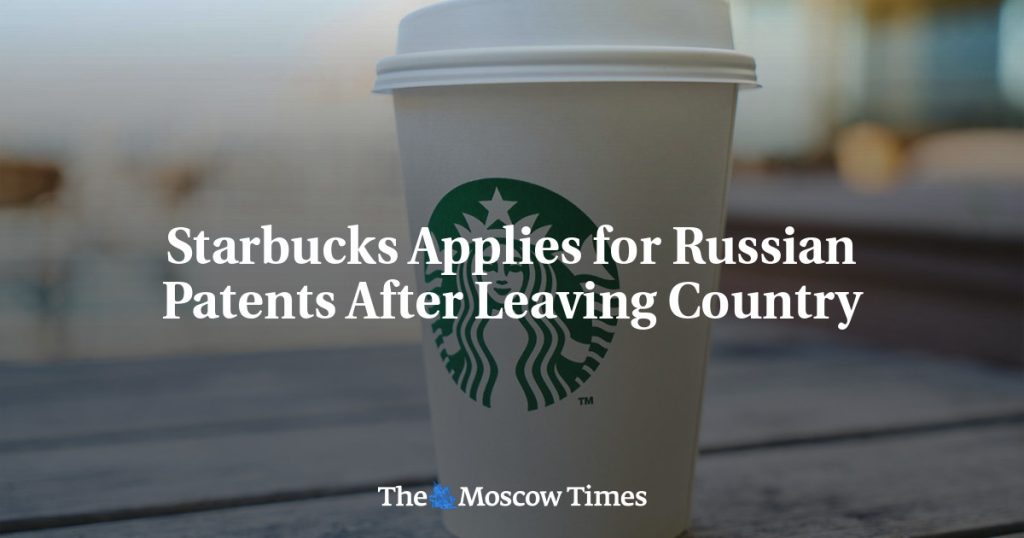Starbucks has applied for several patents in Russia almost two years after exiting the country over its war in Ukraine, the Vedomosti business daily reported. The move is seen as potentially signaling Starbucks’ return to the Russian market or simply an effort to extend patent protections before they expire next year. Starbucks suspended work and deliveries in Russia on March 10, 2022, shortly after the Ukraine invasion, and announced a full exit in May after nearly 15 years in the market. Pro-Kremlin rapper Timati and Russian restaurateur Anton Pinskiy acquired Starbucks’ Russian operations in July 2022 and reopened it as “Stars Coffee” with the slogan “Bucks is gone, stars stay.” Pinskiy had attempted to register several similar trademarks, with Rospatent ruling that they were too similar to Starbucks. In April, he filed a suit seeking the early termination of the Starbucks Corporation trademark.
According to Vedomosti, Starbucks Corporation has applied for eight Russian patents for brands like “Starbucks coffee” and “frappuccino,” as well as for services like food and drink preparations and loyalty programs. The Seattle-based corporation has not commented on the Vedomosti report. Legal experts believe Starbucks may be pursuing the dual goal of potentially returning to Russia in the future and protecting its trademarks after the three-year expiration period of the patents in 2025. Starbucks had employed 2,000 people across its 130 stores in Russia before its wartime exit.
The acquisition of Starbucks’ Russian operations by Timati and Pinskiy and the establishment of “Stars Coffee” in place of Starbucks indicate the interest in keeping the brand alive in Russia despite the previous exit. Starbucks’ application for patents for various brands and services hints at a potential return to the market, as well as the need to protect their trademarks in the country. Pinskiy’s failed attempts to register trademarks similar to Starbucks further highlight the importance of protecting the brand’s identity and intellectual property in Russia. By filing a suit seeking the early termination of the Starbucks Corporation trademark, Pinskiy is attempting to secure his own rights to the brand.
The decision by Starbucks Corporation to apply for patents in Russia after the war in Ukraine reflects the company’s interest in maintaining a presence in the Russian market. The potential return of Starbucks to Russia could generate economic benefits for the country and create employment opportunities. The protection of trademarks through patent applications is crucial for Starbucks to safeguard its brand identity and prevent unauthorized use. Legal experts emphasize the importance of trademark protection in ensuring the long-term viability of Starbucks in Russia. The application for patents by Starbucks suggests a strategic move to secure its position in the Russian market.
Overall, the news of Starbucks applying for patents in Russia following its exit due to the war in Ukraine raises questions about the company’s future plans in the country. The potential return of Starbucks to Russia could signal a positive development for both the company and the local economy. The legal battle over trademarks between Starbucks Corporation and Pinskiy highlights the complexities of protecting intellectual property rights in a competitive market. Starbucks’ pursuit of patents for various brands and services in Russia points towards a strategic effort to maintain its presence and protect its trademarks in the country. The outcome of these legal proceedings and patent applications will likely influence the future of Starbucks in Russia.















